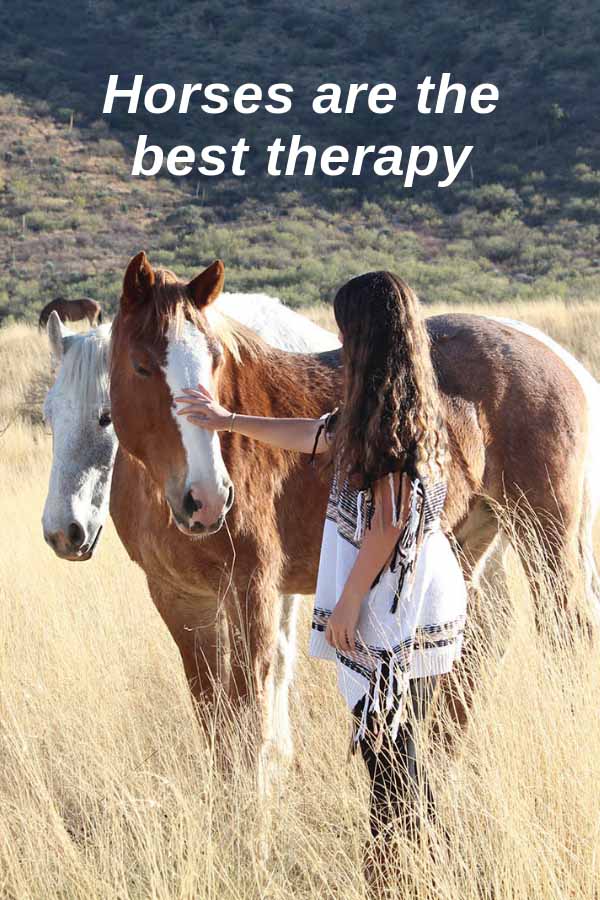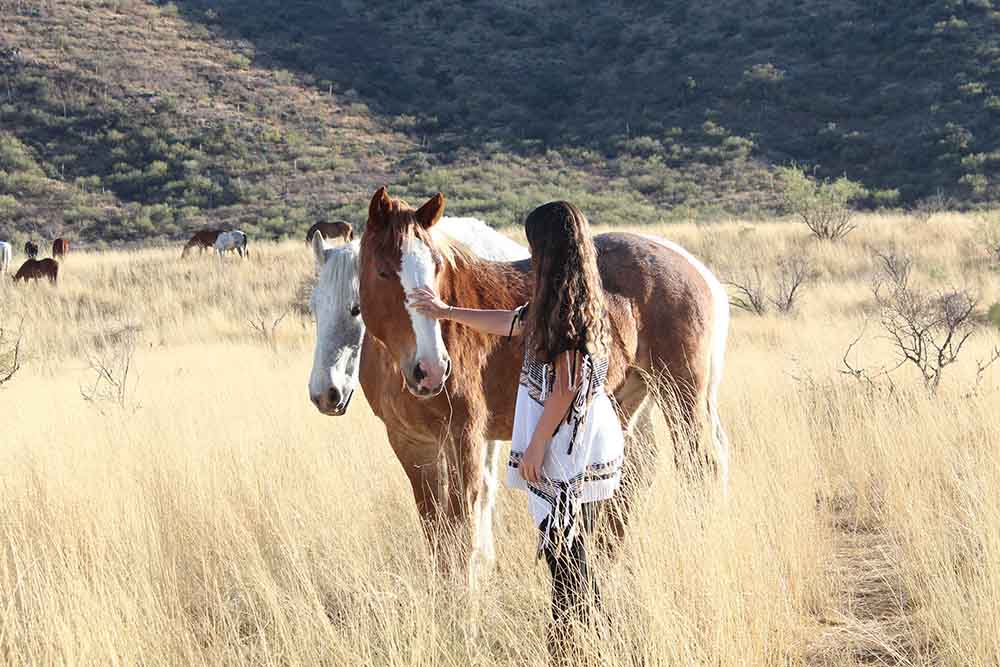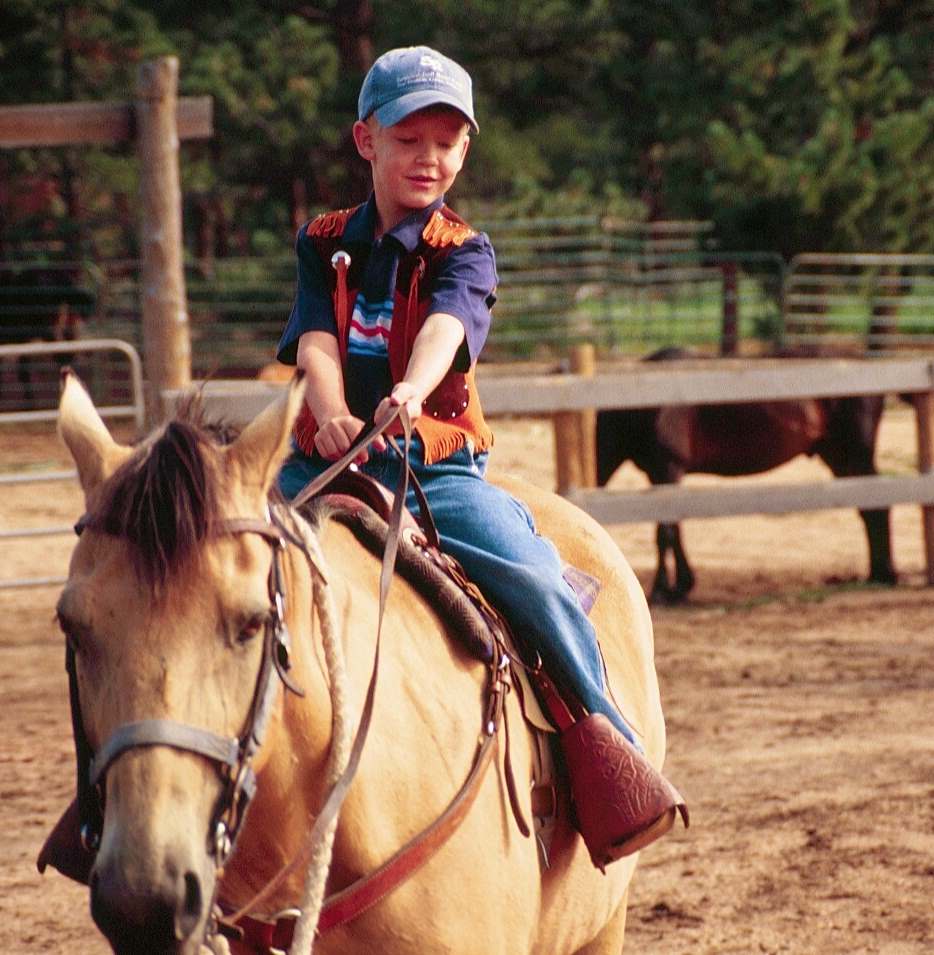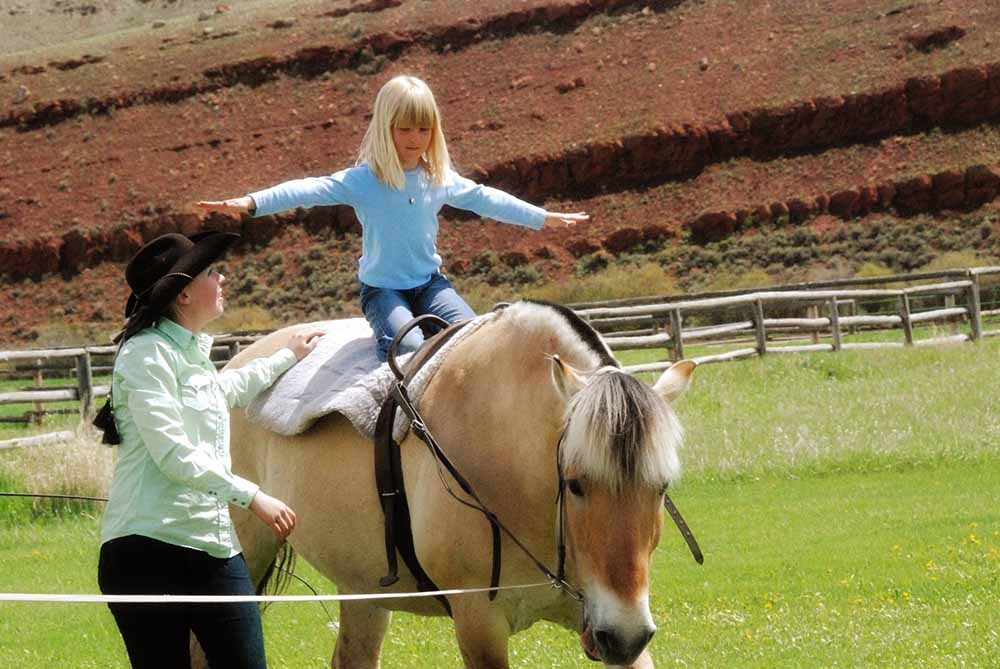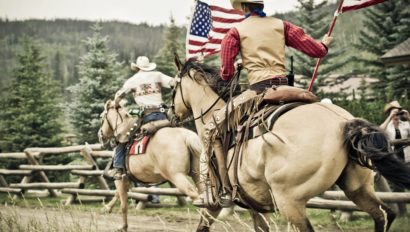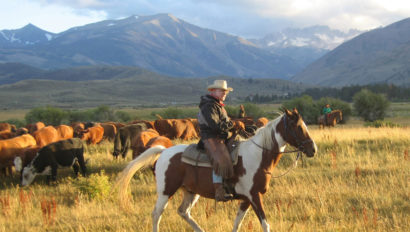
There’s no denying that climbing on a horse at the end of an overwhelming day can be quite liberating. But what if we told you this ancient mode of transport is the best therapy? Believable? Not to worry, this article aims to shed light on therapeutic horseback riding and its benefits.
What is Horseback Riding?
Therapeutic horseback riding is a form of equine therapy that focuses on forming a partnership between patients and horses. It combines sport, recreation, and education and is especially proven helpful for people with disabilities with results showing improvement in their cognitive, physical, emotional and social well-being.
Sundance Trail Guest Ranch, Colorado
Importance of Horseback Riding
Riding a horse is FUN! Now imagine using it for therapy. Nothing can beat that combination. Still doubtful? Below are 7 reasons that might convince you to get on that horse and commence your galloping adventures.
Why Horseback Riding Is the Best Therapy
1. Emotional Strength and Control
Yes, you read it right. Horseback riding keeps your emotions in check. How, you ask? There’s no room for anger or fear. This is only possible if the rider stays vigilant and focused on the surroundings, and at the same time monitors the behavior of the animal. It’s as if the horse’s mind and yours are in sync. Lose focus for a second and the horse begins to wander.
The assertion is one way to build your emotional strength. After all, you are in charge of the horse and not the other way around. Instruct it to go faster, and it will do just that. However, we can’t ignore the fact that a horse has a mind of its own and may sometimes refuse to cooperate with its rider.
2. Strengthened Muscles
Therapeutic horseback riding is much more than emotional health. It’s also used as physical therapy for disabled riders. While horse riding, small muscle movements are necessary. They often consist of hand movements when selecting reins or holding them while riding. Large muscle groups also play a huge role. How? Horseback riding stabilizes the trunk by actively engaging the core muscle as the rider rises and sits to the horse’s rhythm.
3. Improved Balance and Confidence
The rider is continuously thrown-off balance as the horse moves. As a result, the muscles contract and relax in an attempt to regain balance with the exercise reaching the deep muscle tissues considered inaccessible in typical physical therapy. By stopping or starting the horse or changing direction, the rider’s balance can be further improved.
Children living with disabilities sometimes feel trapped in a body they have little control over either through difficulty in walking or confinement to a wheelchair. Now imagine for the first time these kids, through horseback riding for children, get to command their horses with smiles on their faces. Nothing could beat that. Also, a child’s connection with an animal and the opportunity to master horsemanship skills boost their confidence.
4. Positive Sensory Stimulation
Horseback riding stimulates the senses in different ways that are especially beneficial to people with mental disorders. A good example is horseback riding therapy for the autism spectrum. The rider’s sight, sense of touch, hearing and smell are all triggered by the sounds, smell and feel of the horse itself. Introducing horse riding games for kids could help create both sensory enjoyment and appreciation of the act of riding itself. For children with personal horses on the farm, tending to the horse with products for horses is also another exciting way to improve the bond.
5. Demands Focus
What better way to forget about the worries of this world than a horseback riding southwest ranches expedition? Therapeutic horseback riding requires complete attention. This way the rider has no time to think about a problem or stressful situation.
6. Teaches Patience
The art of horseback riding is not acquired overnight. It involves endless trials and an unresponsive horse. However, this is no reason to get discouraged. Sometimes, you have to relax, take a breath, and then give it another shot. This way you’ll acquire patience which is hugely therapeutic and beneficial in other areas too. What’s more, finding a ranch in the U.S should be an easy task, so you don’t have to worry about where to go horseback riding.
7. Develops and Improves Social Skills
Sometimes, people with disabilities may have a hard time interacting with others. Horseback riding offers a way for them to improve their social skills. It starts with the bond naturally formed during the horseback riding lessons between the rider and horse. Once they get used to this, it becomes easier for people with disabilities to build a relationship with the instructors and later on with the community at large. Therapeutic horseback riding also provides an avenue for people to positively channel emotions over their disability which at times hinders social interaction.
Conclusion
Nothing beats a few hours spent with a horse, man’s best therapist. You are assured of experiences worthy of a lifetime. Ever tried therapeutic horseback riding? Feel free to engage us in an email at info@duderanch.org.
Author Bio
Betty Wilson has recently finished a master’s degree in Biodiversity Conservation. Her passion is horse riding. Together with allpetsexpert.com she actively participates in charity events in support of stray animals.
